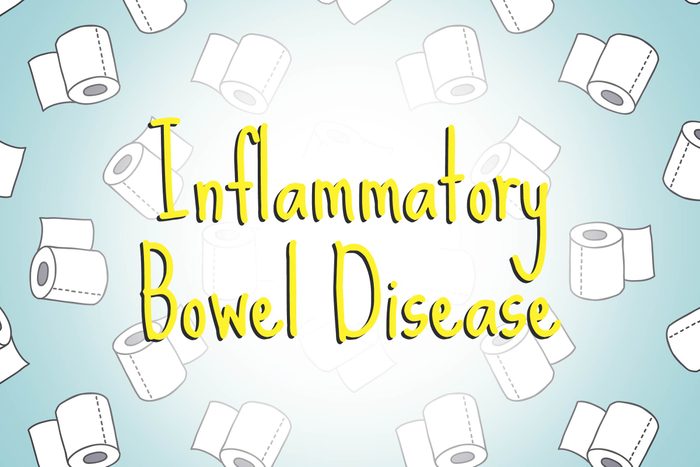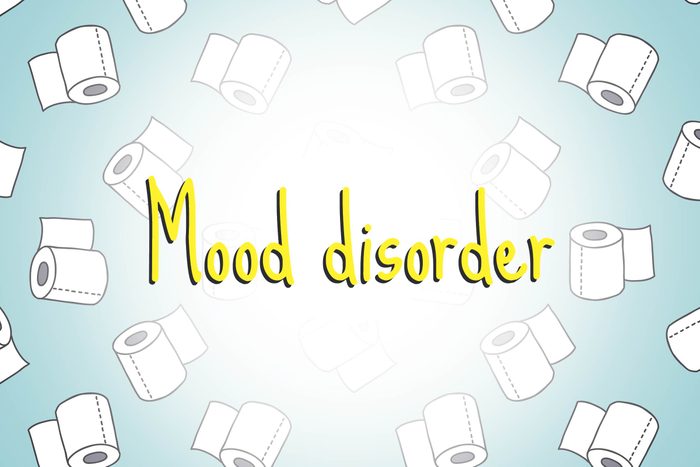
Irritable bowel syndrome
Irritable bowel syndrome (IBS) can cause frequent loose bowel movements, along with cramping and bloating. About 10 to 15 percent of the adult population has IBS, according to David Levinthal, MD, PhD, a gastroenterologist at the University of Pittsburgh Medical Center (UPMC). IBS is more common in women and people under 50. Unfortunately, doctors are still trying to unravel the mystery of what causes IBS. “Ultimately, IBS is diagnosed by the [persistent] presence of core symptoms of altered bowel movements and abdominal pain, in the absence of alarm signs or symptoms such as weight loss or blood in the stool,” Dr. Levinthal says. “There is a large amount of research being conducted into the underlying disease mechanisms that are at play in a patient with IBS.” He says possible causes include imbalances in gut bacteria, changes in gut motility (meaning food goes right through you), or problems with the fermentation of sugars, which causes a laxative-like effect or with the neural pathways that communicate with the GI tract. Certain foods may trigger IBS: The Office on Women’s Health suggests keeping a food diary to see what your triggers are—common culprits are dairy, caffeine, alcohol, artificial sweeteners, and some fruits and veggies. Some IBS stomach pain gets mistaken for cancer; here’s what you should do about it.

Inflammatory bowel disease
Not to be confused with IBS, inflammatory bowel disease (IBD) is caused by inflammation in the GI tract. IBD includes two major types of IBD, Crohn’s disease and ulcerative colitis. Although Dr. Levinthal says the majority of chronic diarrhea is not due to IBD, it’s definitely a major symptom of people who have it. “Most patients with true Crohn’s disease, or related ulcerative colitis, experience bloody bowel movements, nocturnal diarrhea, more constant abdominal pain, rapid weight loss, and a variety of ‘extra-intestinal’ manifestations of disease including mouth ulcers, joint pains, or skin lesions,” Dr. Levinthal says. Read about the best diets to consider if you have digestive problems.

Food allergy or sensitivity
A food diary is once again useful in figuring out if your body is having an adverse reaction to something you’re eating. One possibility is that you’re lactose intolerant, meaning you can’t digest dairy products, which results in a laxative-like effect. “Interestingly, people of all ethnicities are born with the capability of digesting lactose, but after the toddler years most humans worldwide actually become lactose intolerant to varying degrees,” Dr. Levinthal says. For some reason, people of northern European ancestry tend to be able to digest it better than other ethnic groups. “Greater than 90 percent of the adult Asian population is lactose intolerant, while only about five percent of those of northern European ancestry are,” he says. Not sure what your symptoms mean? Check out these 7 hidden symptoms of lactose intolerance.
Celiac disease
Another food digestion problem that may cause diarrhea is Celiac disease. “In patients with true Celiac disease (CD), gluten exposure from any source triggers an immune response that leads to localized inflammation of the small intestine, which can interfere with digestion and absorption of nutrients,” Dr. Levinthal says. “Avoiding exposure to gluten is the best treatment.” Try these tips to decide if it’s gluten that’s causing your tummy troubles.
Sensitivity to FODMAPs
Another lesser-known food-related cause of diarrhea could be certain sugar-like molecules with the acronym FODMAPs (Fermentable Oligosaccharides, Disaccharides, Monosaccharides, and Polyols). They are found in certain foods like mushrooms, pears, apples, prunes, artificial sweeteners, and other foods, and are often linked to IBS symptoms. “Diarrhea due to such poorly digested FODMAPs should resolve with changes in diet to reduce or eliminate the consumption of culprit foods,” Dr. Levinthal says. “This mechanism of diarrhea is quite common and is under-appreciated in the general population.”

Sleep deprivation
You might not suspect that sleep issues have anything to do with chronic diarrhea—but they might. “There is a clear link between poor sleep and GI tract dysfunction, but the details are not fully understood,” says Dr. Levinthal. “Sleep deprivation may impact bowel function through a few potential means, including alterations in the nerve signals along pathways that link the brain and the gut, changes in hormone levels such as the stress hormone cortisol, and shifts in melatonin levels.” Part of being “regular” is having a regular sleep schedule, so your body knows when to go. Here’s what else happens to your body when you don’t get enough sleep.

Diverticulitis
About half of adults over 60 have diverticulosis, a condition in which small pouches bulge outward from the colon or intestines. “They are exceptionally common and linked with aging, low-fiber diets, and chronic constipation, but in most individuals, they cause no issues,” Dr. Levinthal says. But, if one of the pouches becomes inflamed or infected, it can cause diverticulitis, which can cause diarrhea or constipation (or neither) and other symptoms like abdominal pain, nausea, and fever. Diverticulitis attacks are diagnosed using a physical exam, discussion of symptoms as well as blood tests with some form of abdominal imaging, such as a CT scan. “Most cases are treatable with antibiotics,” Dr. Levinthal says.

Intense exercise
Dubbed “runner’s trots,” high-intensity exercising could be giving you stomach trouble as well. As with many other GI conditions, it’s not known exactly why this happens, but “it may relate to changes in the distribution of blood flow away from the gut, or in the nervous system regulation of gut function during prolonged, intense exercise,” Dr. Levinthal says. To help relieve the runs, consider these home remedies for diarrhea.

Long-term effects from a GI bug
You thought you kicked that nasty infection out of your symptom, but Dr. Levinthal says up to 30 percent of people who’ve had a bacterial or viral infection experience lasting changes in gut function, called post-infectious IBS. “Some of the best evidence of this phenomenon comes from studies of previously healthy individuals exposed to communicable GI illnesses, such as on a cruise ship, or food-borne illnesses during large outbreaks,” he says. According to the International Foundation for Functional Gastrointestinal Disorders, 50 percent of patients with post-infectious IBS will eventually recover without treatment, but that can take years. Here are smart tricks to not get sick on a cruise.

Menstruation
If you’re a woman, consider the timing of your diarrhea. Does it hit right around your period? “Reproductive hormones fluctuate greatly over the course of a woman’s menstrual cycle, and some of these hormones can have broad impacts on body-wide physiology,” Dr. Levinthal says. For example, he says, prostaglandins, which stimulate menstrual cramps, can also work to stimulate the muscles of the colon, speeding up motility and causing diarrhea. While you’re dealing with diarrhea, avoid these period mistakes that make your time of the month even worse.

Fibromyalgia
There may be a connection between bowel issues and fibromyalgia, a condition marked by musculoskeletal pain and fatigue. Unfortunately, doctors don’t yet understand the link. “Fibromyalgia, much like IBS, is a common functional disorder of unknown cause,” Dr. Levinthal says. “Diarrhea is not a specific symptom of fibromyalgia, but many patients with IBS have co-morbid fibromyalgia.” This means that while fibromyalgia doesn’t exactly cause IBS, if you have fibromyalgia you may also have IBS symptoms. According to research in Mayo Clinic Proceedings in 2015, the link between fibromyalgia and IBS could be in how the body processes pain. Here are 10 natural ways to treat fibromyalgia.

Mood disorder
Researchers are learning more about the connection between the mind and the gut—and it turns out, having “butterflies in your stomach” or a “stomach in knots” is a real thing. “Changes in mood are inexorably linked with changes in GI tract function because many of the neural pathways in the brain involved in mood regulation and emotional processing also impact our body physiology,” Dr. Levinthal says. “Thus, chronic changes in mood—anxiety or depression—can have a profound impact on our gut function.” Research in the World Journal of Gastroenterology in 2014 has found that stress can impact gut function as well. Because of this mind-body connection, doctors are now treating IBS with antidepressants, although in this case the antidepressants aren’t to treat an underlying psychiatric mood disorder unless one has been diagnosed. Stress reduction may also help. “Many IBS patients experience improvement of bowel function with psychological therapies, or stress-relieving practices such as mindfulness meditation,” Dr. Levinthal says. Here are other signs stress could be making you sick.

